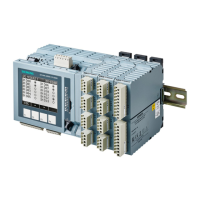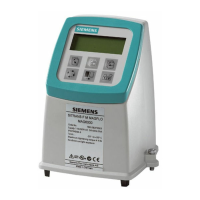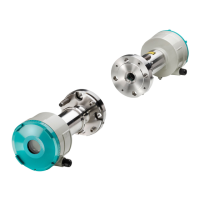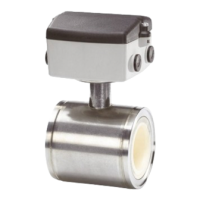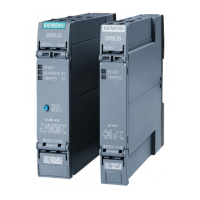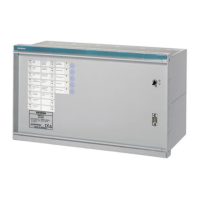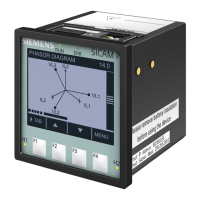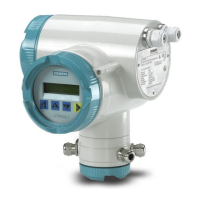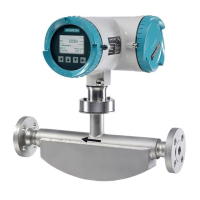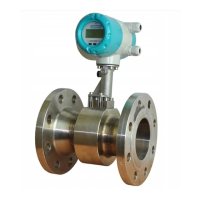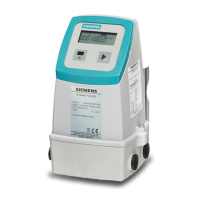Measuring principle
In contrast to other gases, oxygen is highly paramagnetic. OXYMAT 7 analyzer modules use this
physical property to determine the oxygen concentration in gases.
Oxygen molecules in an inhomogeneous magnetic eld always move toward the higher eld
strength. This results in a higher oxygen concentration where the eld strength is higher
(higher oxygen partial pressure). If two gases with diering oxygen content come together
in a magnetic eld, a partial pressure dierence arises between them. The measuring eect
is therefore always based on the dierence in the oxygen content of the two gases. The two
gases are referred to as the sample gas and the reference gas.
How it works
To measure oxygen in the OXYMAT 7, the reference gas (nitrogen, air or oxygen) ows through
two reference gas channels ④ into the measuring chamber ⑥. One of these partial ows enters
the measuring chamber in the area of the magnetic eld ⑦. If the sample gas contains no
oxygen, the reference gas ows freely into the sample chamber. However, if the sample gas
contains oxygen, the oxygen molecules concentrate in the area of the magnetic eld. The
reference gas can then no longer ow freely into the sample chamber. There is a slight build-up
of dynamic pressure, which depends on the concentration of oxygen in the sample gas. In an
oscillating magnetic eld, oscillating pressure is also generated and this results in alternating
ow. This alternating ow is converted into an alternating current signal by two microow
sensors ③ located between the reference gas channels ④.
The microow sensors ③ consist of two nickel-plated grids each, which are arranged
together with two further nickel-plated grids to form a measuring bridge. The alternating
ow results in a change in the resistance of the nickel-plated grids. The resulting oset in the
bridge is a measure of the concentration of oxygen in the sample gas.
The microow sensors ③ are surrounded by reference gas. This arrangement protects them
from corrosion by the sample gas.
Vibrations at the installation site can interfere with the measured signal, for example, large
uctuations in the output signal. Two additional optional microow sensors ⑪ serve as
vibration sensors and thus compensate for the undesirable behavior.
Description
4.4OXYMAT 7
Wall-mounted device
30 Operating Instructions, 07/2023, A5E31930403-AB
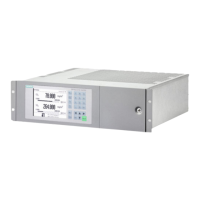
